I’m going to bet most everyone reading this knows what gerrymandering is, but not very many of us have thought much about prison gerrymandering.
Prison gerrymandering occurs when people who are incarcerated are counted at a temporary prison address rather than at their permanent address for purposes of the census and redistricting.
Several states have ended this practice, fixing a fundamental injustice, and Illinois ought to join them before redistricting gets underway next year.
Think about it. As we’re continuing to grapple with combating systemic racism, this is one of the key things we need to make right. The people in our prison system, and in those throughout the country, tend to be Black and Brown people from urban areas. They are convicted of crimes and shipped away to rural areas where they mostly are ignored or forgotten, except by those who love them or the incredible advocates who fight for them and their rights.
Those people, who are incarcerated for short periods, end up being counted as permanent residents of rural prison communities for a decade. They lose out and their home communities lose out. Prison gerrymandering unfairly skews representation toward prisons and away from the communities where people who are incarcerated actually live. It steals representation not just from them, but also from their relatives, friends and neighbors in their home communities.
So, who is losing out? According to the most recent data available from the Prison Policy Initiative, 70 percent of the prison population in Illinois is made up of Black and Brown residents. Black Illinoisans make up the single largest demographic group of those incarcerated, by far.
To put a finer point on it, a large portion of people who are incarcerated serve less than 2½ years, but they’re counted and their representation is tied to that prison address for a decade. When they return home, they will have much less representation than the rest of us.
Some who are reading this might spend more time at a vacation home over the next decade than many of those who are convicted of crimes will spend in prison. Some people reading this might have children in boarding schools who will spend more time away from home over 10 years than some of those who are incarcerated will spend in prison.
And I don’t know about you, but I can’t recall ever hearing about any lawmaker holding a town hall at a prison. I can’t recall ever hearing about a lawmaker holding a job fair or constituent service day at a prison.
Now, I know some lawmakers whose districts include prisons have expressed concerns about ending prison gerrymandering because they fear losing some of the funding that is tied to the census. That fear is misguided because money from the census really is not tied to specific individuals.
Consider that two states, New York and Maryland, ended prison gerrymandering prior to redistricting in 2011. According to research by the Prison Policy Initiative, there was no revenue loss to municipalities that included prisons in those states as a result of the change in how people who were incarcerated were counted.
Ten states already have passed laws to end the practice of prison gerrymandering. Illinois lawmakers ought to meet as soon as possible and make our state the 11th.
It’s about equity. It’s about fixing a systemic injustice that predominantly has harmed people of color.
Prison gerrymandering robs people and their communities of their voices and representation. It’s that simple. We have an opportunity to act before redistricting begins next year. Let’s put this at the top of the agenda when lawmakers get to work in January. Let’s get done what is the absolute right thing to do.
This column was originally published by Crain’s Chicago Business.
